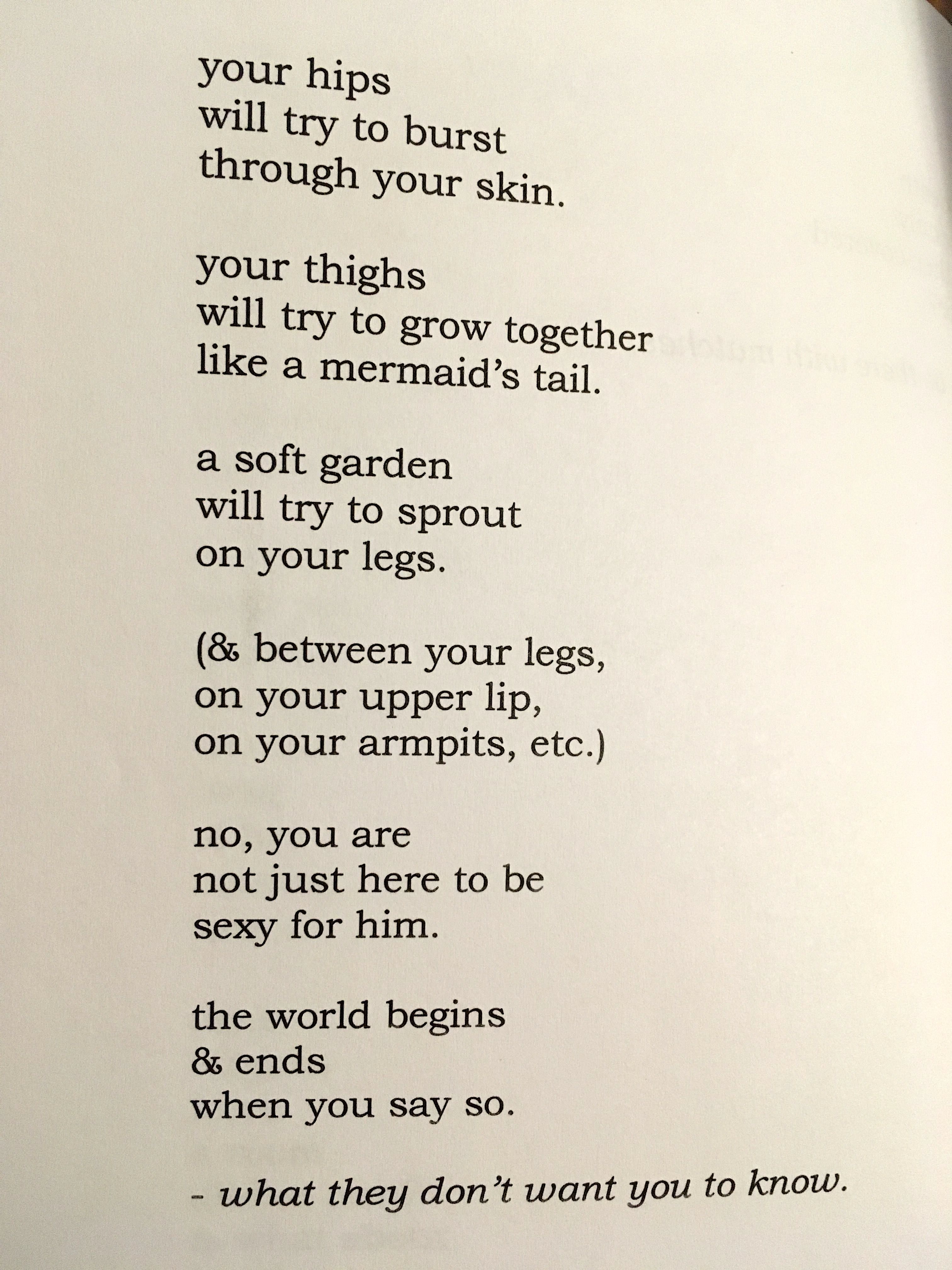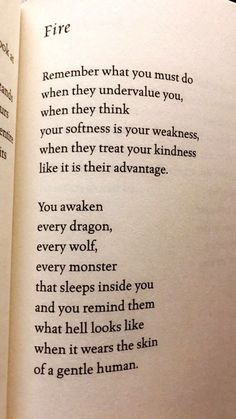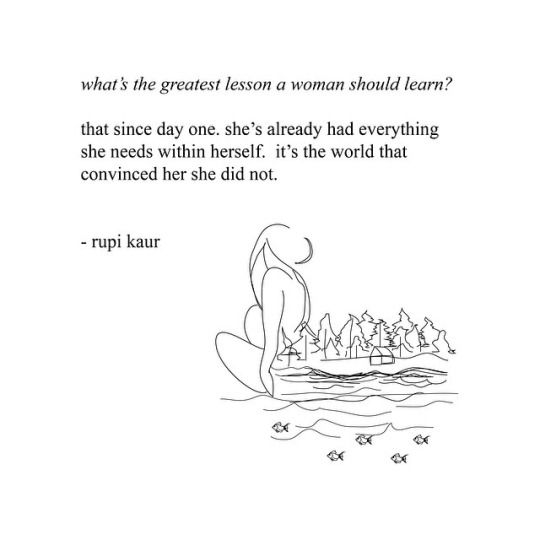There’s something that makes verse (both written and spoken) a uniquely powerful vessel to express the multifaceted experiences of feminism. It’s easier to discover new feminist poetry and strong woman poems. In this collection of 25 feminist poems, you’ll find a voice for every perspective from the feminist movement. From feminist love poems to poems about women’s rights, you can read, watch, and be inspired by some of the greatest feminist poets working past and present.
“Lady Lazarus” by Sylvia Plath
I have done it again.
One year in every ten
I manage it—
A sort of walking miracle, my skin
Bright as a Nazi lampshade,
My right foot
A paperweight,
My face a featureless, fine
Jew linen.
Peel off the napkin
O my enemy.
Do I terrify?—
The nose, the eye pits, the full set of teeth?
The sour breath
Will vanish in a day.
Soon, soon the flesh
The grave cave ate will be
At home on me
And I a smiling woman.
I am only thirty.
And like the cat I have nine times to die.
This is Number Three.
What a trash
To annihilate each decade.
What a million filaments.
The peanut-crunching crowd
Shoves in to see
Them unwrap me hand and foot—
The big strip tease.
Gentlemen, ladies
These are my hands
My knees.
I may be skin and bone,
Nevertheless, I am the same, identical woman.
The first time it happened I was ten.
It was an accident.
The second time I meant
To last it out and not come back at all.
I rocked shut
As a seashell.
They had to call and call
And pick the worms off me like sticky pearls.
Dying
Is an art, like everything else.
I do it exceptionally well.
I do it so it feels like hell.
I do it so it feels real.
I guess you could say I’ve a call.
It’s easy enough to do it in a cell.
It’s easy enough to do it and stay put.
It’s the theatrical
Comeback in broad day
To the same place, the same face, the same brute
Amused shout:
‘A miracle!’
That knocks me out.
There is a charge
For the eyeing of my scars, there is a charge
For the hearing of my heart—
It really goes.
And there is a charge, a very large charge
For a word or a touch
Or a bit of blood
Or a piece of my hair or my clothes.
So, so, Herr Doktor.
So, Herr Enemy.
I am your opus,
I am your valuable,
The pure gold baby
That melts to a shriek.
I turn and burn.
Do not think I underestimate your great concern.
Ash, ash—
You poke and stir.
Flesh, bone, there is nothing there—
A cake of soap,
A wedding ring,
A gold filling.
Herr God, Herr Lucifer
Beware
Beware.
Out of the ash
I rise with my red hair
And I eat men like air.
“Planetarium” by Adrienne Rich, read by astrophysicist Janna Levin
“Marrying the Hangman” by Margaret Atwood
She has been condemned to death by hanging. A man
may escape this death by becoming the hangman, a
woman by marrying the hangman. But at the present
time there is no hangman; thus there is no escape.
There is only a death, indefinitely postponed. This is
not fantasy, it is history.
*
To live in prison is to live without mirrors. To live
without mirrors is to live without the self. She is
living selflessly, she finds a hole in the stone wall and
on the other side of the wall, a voice. The voice
comes through darkness and has no face. This voice
becomes her mirror.
*
In order to avoid her death, her particular death, with
wrung neck and swollen tongue, she must marry the
hangman. But there is no hangman, first she must
create him, she must persuade this man at the end of
the voice, this voice she has never seen and which has
never seen her, this darkness, she must persuade him
to renounce his face, exchange it for the impersonal
mask of death, of official death which has eyes but
no mouth, this mask of a dark leper. She must
transform his hands so they will be willing to twist
the rope around throats that have been singled out
as hers was, throats other than hers. She must marry
the hangman or no one, but that is not so bad. Who
else is there to marry?
*
You wonder about her crime. She was condemned
to death for stealing clothes from her employer, from
the wife of her employer. She wished to make herself
more beautiful. This desire in servants was not legal.
*
She uses her voice like a hand, her voice reaches
through the wall, stroking and touching. What could
she possibly have said that would have convinced him?
He was not condemned to death, freedom awaited
him. What was the temptation, the one that worked?
Perhaps he wanted to live with a woman whose life
he had saved, who had seen down into the earth but
had nevertheless followed him back up to life. It was
his only chance to be a hero, to one person at least,
for if he became the hangman the others would
despise him. He was in prison for wounding another
man, on one finger of the right hand, with a sword.
This too is history.
*
My friends, who are both women, tell me their stories,
which cannot be believed and which are true. They
are horror stories and they have not happened to me,
they have not yet happened to me, they have
happened to me but we are detached, we watch our
unbelief with horror. Such things cannot happen to
us, it is afternoon and these things do not happen in
the afternoon. The trouble was, she said, I didn’t
have time to put my glasses on and without them I’m
blind as a bat, I couldn’t even see who it was. These
things happen and we sit at a table and tell stories
about them so we can finally believe. This is not
fantasy, it is history, there is more than one hangman
and because of this some of them are unemployed.
*
He said: the end of walls, the end of ropes, the opening
of doors, a field, the wind, a house, the sun, a table,
an apple.
She said: nipple, arms, lips, wine, belly, hair, bread,
thighs, eyes, eyes.
They both kept their promises.
*
The hangman is not such a bad fellow. Afterwards he
goes to the refrigerator and cleans up the leftovers,
though he does not wipe up what he accidentally
spills. He wants only the simple things: a chair,
someone to pull off his shoes, someone to watch him
while he talks, with admiration and fear, gratitude if
possible, someone in whom to plunge himself for rest
and renewal. These things can best be had by marrying
a woman who has been condemned to death by other
men for wishing to be beautiful. There is a wide
choice.
*
Everyone said he was a fool.
Everyone said she was a clever woman.
They used the word ensnare.
*
What did they say the first time they were alone
together in the same room? What did he say when
she had removed her veil and he could see that she
was not a voice but a body and therefore finite?
What did she say when she discovered that she had
left one locked room for another? They talked of
love, naturally, though that did not keep them
busy forever.
*
The fact is there are no stories I can tell my friends
that will make them feel better. History cannot be
erased, although we can soothe ourselves by
speculating about it. At that time there were no
female hangmen. Perhaps there have never been any,
and thus no man could save his life by marriage.
Though a woman could, according to the law.
*
He said: foot, boot, order, city, fist, roads, time,
knife.
She said: water, night, willow, rope hair, earth belly,
cave, meat, shroud, open, blood.
They both kept their promises.
“Spear” by Elizabeth Acevedo
“what they don’t want you to know” by Amanda Lovelace

“what they don’t want you to know” by Amanda Lovelace
“I Am A Nasty Woman” by Nina Donovan, read by Ashley Judd at the 2017 Women’s March on Washington
“Her Kind” by Anne Sexton
I have gone out, a possessed witch,
haunting the black air, braver at night;
dreaming evil, I have done my hitch
over the plain houses, light by light:
lonely thing, twelve-fingered, out of mind.
A woman like that is not a woman, quite.
I have been her kind.
I have found the warm caves in the woods,
filled them with skillets, carvings, shelves,
closets, silks, innumerable goods;
fixed the suppers for the worms and the elves:
whining, rearranging the disaligned.
A woman like that is misunderstood.
I have been her kind.
I have ridden in your cart, driver,
waved my nude arms at villages going by,
learning the last bright routes, survivor
where your flames still bite my thigh
and my ribs crack where your wheels wind.
A woman like that is not ashamed to die.
“All the Good Women are gone” by Susan Nguyen
Have you ever cried during an interview
because you started talking about your family,
or while serving tables in Virginia
when a man’s hand lands on your ass.
Have you ever had your boyfriend
tell you he wanted to go celibate,
which meant no kissing or holding hands,
or ever been pulled over for tailgating
a cop who called you stupid,
to which you agreed.
Have you ever been 9 weeks pregnant,
barely able to pay for your tiny apartment,
and searching for something,
anything, you don’t know what,
amidst sites asking
Where are all the good women?
Why do they sin?
They’ll take your money and break your heart
and you think good but feel sick.
The pill you order
arrives in a yellow envelope.
It looks like it came from someone’s basement,
and you cramp for days.
The bleeding never stops, not like on your period.
When you pull down your underwear,
a blood clot falls onto the bathroom floor
of the gas station.
This is when you are driving west
and you ask your phone:
Does coffee make anxiety worse?
What are to-be verbs?
How long will 18 mg of Adderall last?
How to stop yourself from crying?
Answer: distract yourself with pain.
Sink your nails into your thighs.
Slam your hand in a car door.
Slap your jaw with a tightened fist
and laugh at how easy it used to be
to make yourself cry on purpose.
All you had to do was think
about your dog dying someday
and now you think about your dog dying
two years ago and there is nothing.
There is nothing
until you leave the bathroom
and the man behind the counter says
Slow down, child. At least buy yourself
a pretzel melt first.
Then, perhaps, there is something.
“Final Performance” by Cynthia Cruz
I crawl along the wet floor
Of my mother’s childhood,
A serpent, or a long-buried secret,
In my mother’s bisque
Chiffon gown with small stars
Stitched in silver, a crown
Of tinsel pinned into the dark
Blonde knots and dreads of my hair.
I follow a sequin thread of dead
Things, stop when the moon clocks out,
Polish my long nails in the sun.
“Still I rise” by Maya Angelou, read by Serena Williams
“Respect” by Melissa Studdard
Because her body is winter inside a cave
because someone built
fire there and forgot to put it out
because bedtime is a castle
she’s building inside herself
with a moat
and portcullis
and buckets full of mist
because when you let go
the reins
horses
tumble over cliffs and turn
into moths before hitting bottom
because their hooves leave streaks of midnight
in the sky
because stuffed rabbits
are better at keeping secrets
than stopping hands
because when the world got
shoved up inside her
she held it tight like a kegel ball
and wondered
at the struggle Atlas had
carrying such a tiny thing
on his back
“Wade in the Water” by Tracy K. Smith
for the Geechee Gullah Ring Shouters
One of the women greeted me.
I love you, she said. She didn’t
Know me, but I believed her,
And a terrible new ache
Rolled over in my chest,
Like in a room where the drapes
Have been swept back. I love you,
I love you, as she continued
Down the hall past other strangers,
Each feeling pierced suddenly
By pillars of heavy light.
I love you, throughout
The performance, in every
Handclap, every stomp.
I love you in the rusted iron
Chains someone was made
To drag until love let them be
Unclasped and left empty
In the center of the ring.
I love you in the water
Where they pretended to wade,
Singing that old blood-deep song
That dragged us to those banks
And cast us in. I love you,
The angles of it scraping at
Each throat, shouldering past
The swirling dust motes
In those beams of light
That whatever we now knew
We could let ourselves feel, knew
To climb. O Woods—O Dogs—
O Tree—O Gun—O Girl, run—
O Miraculous Many Gone—
O Lord—O Lord—O Lord—
Is this love the trouble you promised?
“My Mother Was a Freedom Fighter” by Aja Monet
“A Woman Speaks” by Audre Lorde
Moon marked and touched by sun
my magic is unwritten
but when the sea turns back
it will leave my shape behind.
I seek no favor
untouched by blood
unrelenting as the curse of love
permanent as my errors
or my pride
I do not mix
love with pity
nor hate with scorn
and if you would know me
look into the entrails of Uranus
where the restless oceans pound.
I do not dwell
within my birth nor my divinities
who am ageless and half-grown
and still seeking
my sisters
witches in Dahomey
wear me inside their coiled cloths
as our mother did
mourning.
I have been woman
for a long time
beware my smile
I am treacherous with old magic
and the noon’s new fury
with all your wide futures
promised
I am
woman
and not white.
“Fire” by Nikita Gill

“Fire” by Nikita Gill
“Pocket-Sized Feminism” by Blythe Baird
“Poet as Housewife” by Elisabeth Eybers
Always a broom leaned against a wall,
meals never on time, if they come at all.
Days without dates through which she moves
empty and stubborn, slightly confused.
Ironing hung dejectedly over a chair,
gestures that come from who-knows-where.
Old letters unanswered, piled together,
papers and pills stuffed deep in a drawer.
Thankful to be part of your heart’s great whole
yet devoted to the limits of her own small skull.
O orderly biped, take heed,
leave her alone—let her read.
—Translated from the Afrikaans by Jacquelyn Pope
“The Period Poem” by Dominique Christina
“They Shut Me Up in Prose— (445)” by Emily Dickinson
They shut me up in Prose—
As when a little Girl
They put me in the Closet—
Because they liked me “still”—
Still! Could themself have peeped—
And seen my Brain—go round—
They might as wise have lodged a Bird
For Treason—in the Pound—
Himself has but to will
And easy as a Star
Look down opon Captivity—
And laugh—No more have I—
“what’s the greatest lesson a woman should learn?” by Rupi Kaur

“what’s the greatest lesson a woman should learn?” by Rupi Kaur
“Fantastic Breasts and Where to Find Them” by Brenna Twohy
“Sadie and Maud” by Gwendolyn Brooks
Maud went to college.
Sadie stayed at home.
Sadie scraped life
With a fine-tooth comb.
She didn’t leave a tangle in.
Her comb found every strand.
Sadie was one of the livingest chits
In all the land.
Sadie bore two babies
Under her maiden name.
Maud and Ma and Papa
Nearly died of shame.
When Sadie said her last so-long
Her girls struck out from home.
(Sadie had left as heritage
Her fine-tooth comb.)
Maud, who went to college,
Is a thin brown mouse.
She is living all alone
In this old house.
“10 Honest Thoughts on Being Loved by a Skinny Boy” by Rachel Wiley
“A Myth of Devotion” by Louise Glück
When Hades decided he loved this girl
he built for her a duplicate of earth,
everything the same, down to the meadow,
but with a bed added.
Everything the same, including sunlight,
because it would be hard on a young girl
to go so quickly from bright light to utter darkness
Gradually, he thought, he’d introduce the night,
first as the shadows of fluttering leaves.
Then moon, then stars. Then no moon, no stars.
Let Persephone get used to it slowly.
In the end, he thought, she’d find it comforting.
A replica of earth
except there was love here.
Doesn’t everyone want love?
He waited many years,
building a world, watching
Persephone in the meadow.
Persephone, a smeller, a taster.
If you have one appetite, he thought,
you have them all.
Doesn’t everyone want to feel in the night
the beloved body, compass, polestar,
to hear the quiet breathing that says
I am alive, that means also
you are alive, because you hear me,
you are here with me. And when one turns,
the other turns—
That’s what he felt, the lord of darkness,
looking at the world he had
constructed for Persephone. It never crossed his mind
that there’d be no more smelling here,
certainly no more eating.
Guilt? Terror? The fear of love?
These things he couldn’t imagine;
no lover ever imagines them.
He dreams, he wonders what to call this place.
First he thinks: The New Hell. Then: The Garden.
In the end, he decides to name it
Persephone’s Girlhood.
A soft light rising above the level meadow,
behind the bed. He takes her in his arms.
He wants to say I love you, nothing can hurt you
but he thinks
this is a lie, so he says in the end
you’re dead, nothing can hurt you
which seems to him
a more promising beginning, more true.
“Feminist or a Womanist” by Staceyann Chin
For more feminist writers on Book Riot, check out our collection of strong women quotes, our Buy, Borrow, Bypass guide to feminist poetry collections, and list of empowering feminist quotes.
Source : 25 Feminist Poems to Provoke and Inspire Nasty Women









